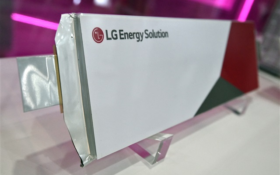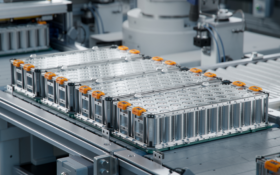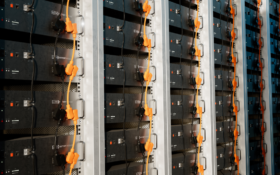Canadian technology company Nano One announced that tests on high voltage spinel (HVS) cathode material are proving very promising.
The tests are in collaboration with the University of Michigan for the development of solid-state lithium-ion batteries.
HVS, also known as lithium nickel manganese oxide (LMNO), is inexpensive, cobalt free and fast charging. It is suited to solid-state lithium-ion batteries because it does not expand, contract and stress the cathode-electrolyte interface.
Furthermore, Nano One’s proprietary coated single crystal powder protects the cathode from side reactions while allowing the rapid transfer of lithium ions between electrolyte and cathode.
Professor of Materials Science and Engineering at the University of Michigan (UM), Richard Laine, Ph.D., said: “Initial results from our evaluations show that Nano One’s HVS materials perform well with our innovative agricultural waste derived electrolytes and we look forward to advancing our collaboration to demonstrate a viable solid-state battery configuration.”
The company has a number of test programmes underway with industry and academia to test its lithium nickel manganese cobalt oxide (NMC) and HVS in different solid-state battery systems.
“Evaluations of Nano One’s unique NMC 811 and HVS cathode materials are showing positive results with solid-state electrolytes in solid-state batteries,” said Dr Stephen Campbell (pictured), CTO of Nano One. “Nano One sees great potential for growth in solid-state battery markets driven by automotive interest. We are scaling up our innovative processes and materials with a growing list collaborators.”












